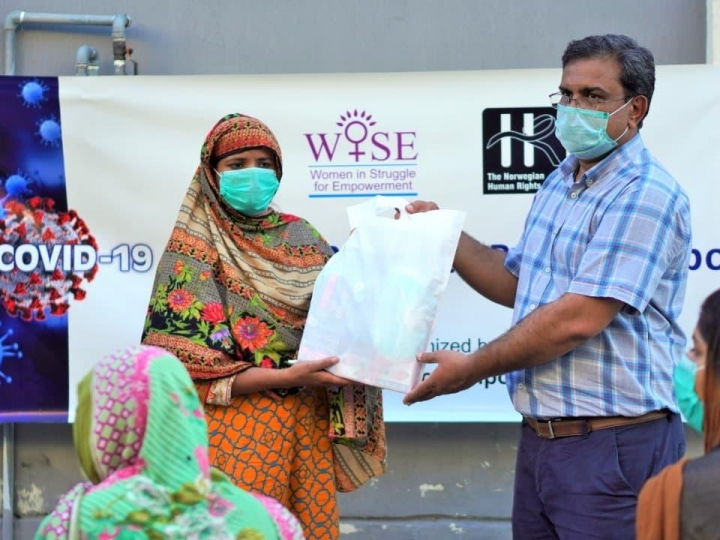While the NHRF's recent grantee survey demonstrates that human rights defenders and organizations have been severely impacted by COVID-19, the results also clearly show that organizations have adapted innovatively and creatively, and are still efficiently implementing initiatives.
Since the outbreak of COVID-19, the NHRF has been closely monitoring developments, how it impacts the general human rights situation in the countries that we work in, and how it impacts the ability of our grantee partners to conduct their important work. As part of this process, the NHRF sent out a ten-question survey to all of our grantee partners on August 28, to gather information on a broad scale to assess the impact of the coronavirus pandemic. The survey yielded some interesting findings that provide valuable insight into how many civil society organizations and human rights activists are adapting to the incredible difficult challenges amid COVID-19 around the world.
First of all, NHRF’s grantees reported that the pandemic had significantly impacted their ability to implement activities. Almost a quarter reported either a severe negative impact or an extremely negative impact on their ability to do their project work. Half reported a moderate negative impact. The impact on organizations’ activities have been substantial, and an average of 41% of NHRF grantees’ total project activities had been delayed or cancelled as a result of COVID-19.
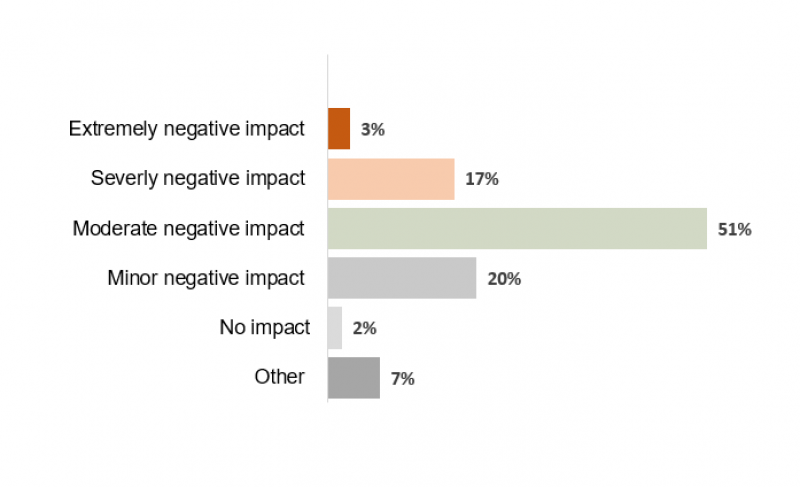
This negative impact has significantly changed the way the NHRF’s grantees interact with their beneficiary communities. Over half of the grantees are currently unable to meet directly with target groups and beneficiaries and organize physical campaigning events, and almost half of the grantees reported that they are unable to provide physical training or undertake advocacy directly with decision-makers in person.
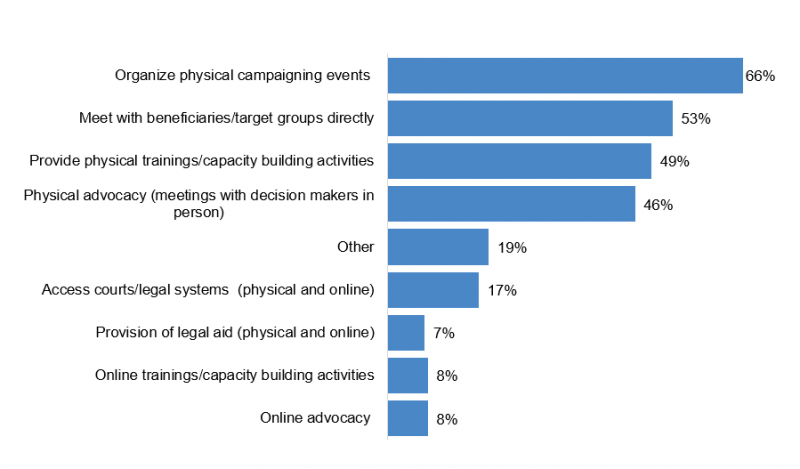
The findings also show that organizations had to substantially change the type of project activities that they conduct in order to adapt to these significant challenges and new circumstances. They reportedly adapted by shifting to increased use of digital platforms and tools, focusing on advocacy and monitoring, as well as ensuring social distancing and face-mask use.
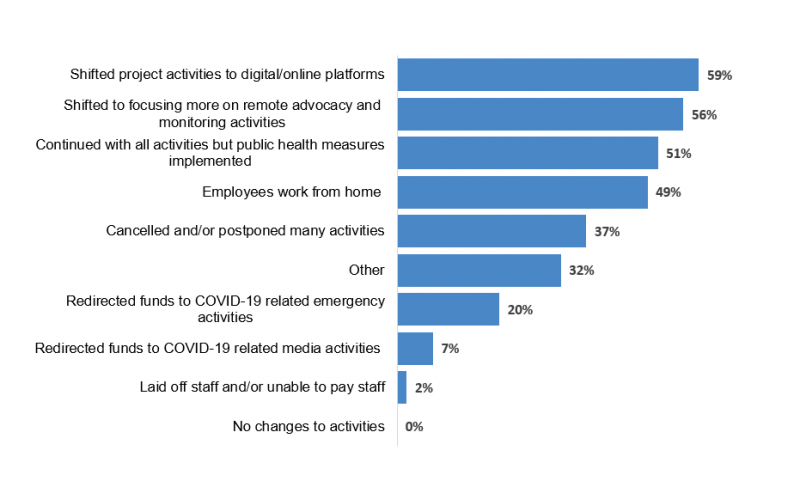
The NHRF also asked our grantee partners to rank their own perceived ability to continue their work and meet project goals, despite the challenges that they face and the transition that they have been compelled to undertake amid COVID-19. Positively, 74% of our grantees reported that they have a fairly strong or very strong ability to achieve the results they planned for before the pandemic outbreak started. This suggests that a substantial amount of organizations are still able to work robustly and have been creative in finding innovative new ways to adapt to a new reality.
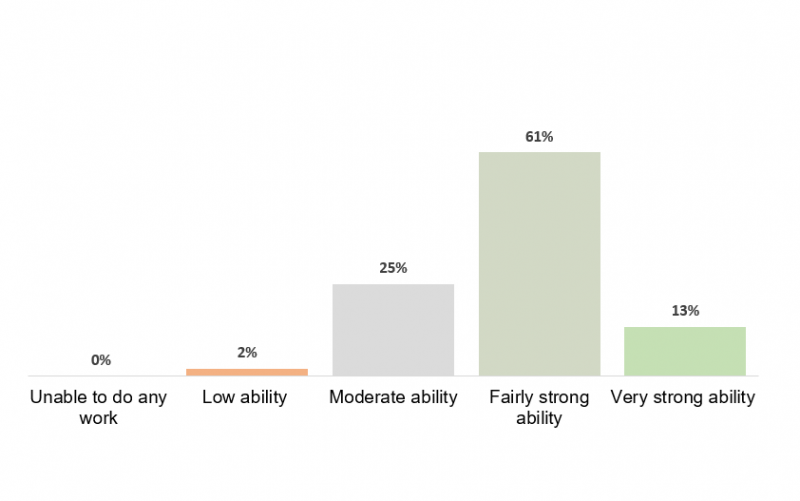
Evidently, COVID-19 has had a tremendous impact on the NHRF’s grantee organizations and, more critically, target communities. However, as has been the case with other parts of society around the world, civil society organizations and human rights defenders have been urged to think innovatively about how they do their work. Additionally, NHRF’s daily contact with our grantees and the survey’s positive results show that local organizations are highly adaptable and that they are still serving their communities well.
Main photo: Women in Struggle for Empowement (WISE).

